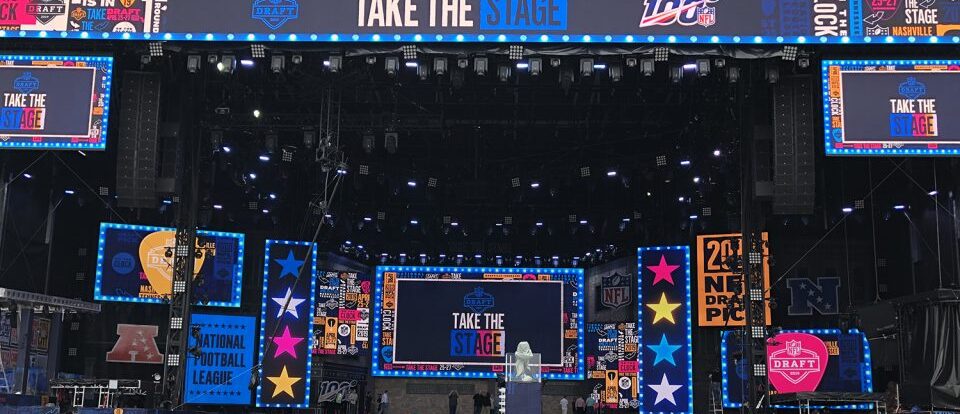Salesperson Development Hinges on A Clear Plan and Supportive Culture

High-performing Sales organizations go beyond hiring for “measurables” and have well thought out plans, processes, coaching and salesperson development strategies in place.
The annual NFL Draft is always full of intrigue for many reasons. The real-time drama unfolds as teams select what they consider to be the best 256 college football prospects over a three-day period. It triggers immediate debate, judgment, hope and frustration from fans and ‘expert’ draft analysts looking to see who “won” the draft and is best set up to win come fall.
The reality is, the vast majority of NFL Draft picks will make marginal or even no impact on their new teams in their first year. They bring talent and a track record of success from their college programs and in most cases are highly motivated. But they lack experience and are far from finished products. Does that mean they were bad additions to their organizations? Hardly. It’s what teams do with new team members in the months and years after they get them into the fold that matters most.
This is very often the same case when organizations hire new salespeople. They’re eager, have often come from other places where they’ve had great success, and have all the “measurables.” But those things alone aren’t a substitute for comprehensive salesperson development in your organization. They need time to develop, continuous learning and development and they need attention, patience and encouragement from their leadership.
In the NFL, the best teams are those that consistently draft well. But they also focus on some specific action steps to make sure those picks become “hits” beyond the hype during the weekend they’re selected. The same is true for organizations that hire and develop their salespeople well.
Here are a few of those steps winning teams and sales organizations take:
They select players viewed as “coachable.”
Whether it’s a sales candidate or athlete, teams need to get to know the person and understand how they receive coaching, their willingness to accept it, and their acumen for applying what they’re learning. What drives them? And are they accountable to themselves and their teammates?
They want players that fit their scheme and culture.
NFL teams can become overly enamored with how fast a player can run a 40-yard dash or how many times they can bench press 225 lbs. But does the player fit what they do as an offense or defense? The best drafting teams don’t just assume a new player with talent will arrive and succeed purely on talent. It has to be the type of talent that syncs well with what they do and value as an organization. Talent is talent, but square pegs usually don’t fit into round holes.
This applies in sales as well. Are you hiring someone with “farming” and account management success but hoping they’ll magically become “hunters” for you? It’s not very likely to happen. Also, consider if they will be additive to your culture. Or do they bring a me-first, always-right attitude that can torpedo it?
They have plan in place for new TEAM members.
From the training staff to position coaches and other support staff, successful NFL teams have a specific plan in place for how they’ll develop the rookies. They feed them bits of information at first, like specific areas to focus on in their workouts, create a foundation of knowledge and confidence, help them digest portions of the playbook and slowly build up from there. They stress process early on over results.
Too many salespeople are brought in and either left to sink or swim or to drown in a fire hose of product and CRM information. High-performing organizations, on the other hand, have well-thought-out salesperson development plans, feeding product knowledge along with developmental coaching strategies that address the essential motivators, beliefs & attitudes that will ultimately impact their results as well as proven processes and a consistent sales framework.
They play their new players to their strengths.
Winning teams don’t pass up drafting good players because they don’t do everything well. They take players that can fill specific roles, succeed there, and over time expand their talents and responsibilities. Winning sales organizations focus on maximizing strengths and putting people into winnable situations where they can gain early wins and momentum vs. trying to make everyone good at everything from day one.
They provide peer mentors.
A rookie NFL player will only have so much one-on-one time with their new position coach, coordinator and head coach once the season begins. Successful teams layer in peer mentorships where veteran players at the same position can serve as advisors, providing insights, pointing out habits to create and pitfalls to avoid, spending extra practice time together and offering encouragement off and on the field.
In effective sales organizations, peer mentoring can take a variety of forms: conducting joint customer calls and reconnecting afterwards to go over what worked and what didn’t; shadowing veteran sales reps on early-stage prospect calls; role-playing with peers; and just check-ins over lunch or coffee to talk about navigating internal processes or how to better leverage sales enablement and marketing tools. Peers can be a great resource for new salesperson development, showing new salespeople the ropes and building their confidence over time in a safe environment.
They let mistakes happen.
NFL preseason games are usually less than thrilling because younger players are getting a chance to try new things, take chances, and apply some of what they’ve been getting taught so far in classrooms and on the practice field. The results aren’t always pretty. Coordination as a unit can be awkward and out-of-sync. But the “real play” (vs. role play) experiences and encouragement they receive is very valuable. It’s a good reminder for sales leaders when they start to feel impatient that talented new salespeople haven’t quite yet hit their stride. Results don’t happen overnight, but that learning period has real value.
No matter how much raw talent and potential they have, great players don’t just arrive fully and completely formed. Chiefs’ two-time MVP QB Patrick Mahomes was a backup his entire 2017 rookie year. Hall of Fame quarterback Peyton Manning threw 28 interceptions and won just three games his rookie year while 7-time Super Bowl champion Tom Brady was a 4th string quarterback as a rookie in New England. Hall of Fame defensive players like John Randle, Kevin Greene and Michael Strahan all struggled as rookies. But their performances and success accelerated quickly in year two and beyond.
Similarly, your newest salespeople will probably see their most noticeable improvement after their initial on-boarding period ends. But if you do your due diligence to add the right types of players to your team, bring them into a supportive culture where continuous learning and coaching is valued, set them up for success with a detailed and ongoing salesperson development plan, and provide them ongoing coaching and mentoring, then they will be well-positioned to deliver big wins for your organization.

Vice President, Client Development
Related Blog Posts



